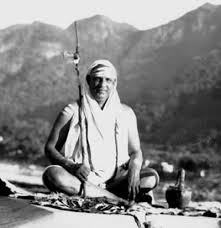Persevere in Sadhana
Let the sadhana (spiritual practice) always be regular, continuous, unbroken and earnest. Not only regularity but also continuity in sadhana and meditation are necessary if you want to attain self-realisation quickly.
A spiritual stream, once set going, does not dry up unless the channel-bed gets blocked, unless there is stagnation. Be vigilant eternally. Meditate regularly. Annihilate the undercurrent of vasana (habit-patterns).
Patience, perseverance, courage, determination, discrimination and dispassion are needed to tread the spiritual path. Put away thoughts, stimuli, perceptions, intentions, emotions, feelings, preoccupations and deliberations arising out of the senses and the sense objects.
You will attain supreme blessedness or the peace of the eternal. Keep the flame of thy aspiration ever kindled bright. Let purity, serenity, compassion, truth and oneness, manifest in thy thoughts and actions. Through penance, prayer and meditation the soul ascends on the divine chariot to the realms of infinite bliss, to God's halls of wisdom.
Regularity is of paramount importance in spiritual practice. Spiritual aspirants must be arduous and efficient in performing their tasks without a break. Pray without a break. Have unshakeable faith.
Remember vairagya (dispassion) and abhyasa (constant practice). Prayer is the wing by which you fly to God. Meditation or intuition is the eye by which you see God. Pray fervently unto the Lord. Pray for the Lord's light and guidance.
Meditate on the great truth within. Strive ever to keep thyself close to the divine centre. Day by day draw nearer unto the Lord. Strive inwardly to grow into the likeness of the divine ideal.
Let the sadhana (spiritual practice) always be regular, continuous, unbroken and earnest. Not only regularity but also continuity in sadhana and meditation are necessary if you want to attain self-realisation quickly.
A spiritual stream, once set going, does not dry up unless the channel-bed gets blocked, unless there is stagnation. Be vigilant eternally. Meditate regularly. Annihilate the undercurrent of vasana (habit-patterns).
Patience, perseverance, courage, determination, discrimination and dispassion are needed to tread the spiritual path. Put away thoughts, stimuli, perceptions, intentions, emotions, feelings, preoccupations and deliberations arising out of the senses and the sense objects.
You will attain supreme blessedness or the peace of the eternal. Keep the flame of thy aspiration ever kindled bright. Let purity, serenity, compassion, truth and oneness, manifest in thy thoughts and actions. Through penance, prayer and meditation the soul ascends on the divine chariot to the realms of infinite bliss, to God's halls of wisdom.
Regularity is of paramount importance in spiritual practice. Spiritual aspirants must be arduous and efficient in performing their tasks without a break. Pray without a break. Have unshakeable faith.
Remember vairagya (dispassion) and abhyasa (constant practice). Prayer is the wing by which you fly to God. Meditation or intuition is the eye by which you see God. Pray fervently unto the Lord. Pray for the Lord's light and guidance.
Meditate on the great truth within. Strive ever to keep thyself close to the divine centre. Day by day draw nearer unto the Lord. Strive inwardly to grow into the likeness of the divine ideal.
***************************************************











.jpg)

















.jpg)
